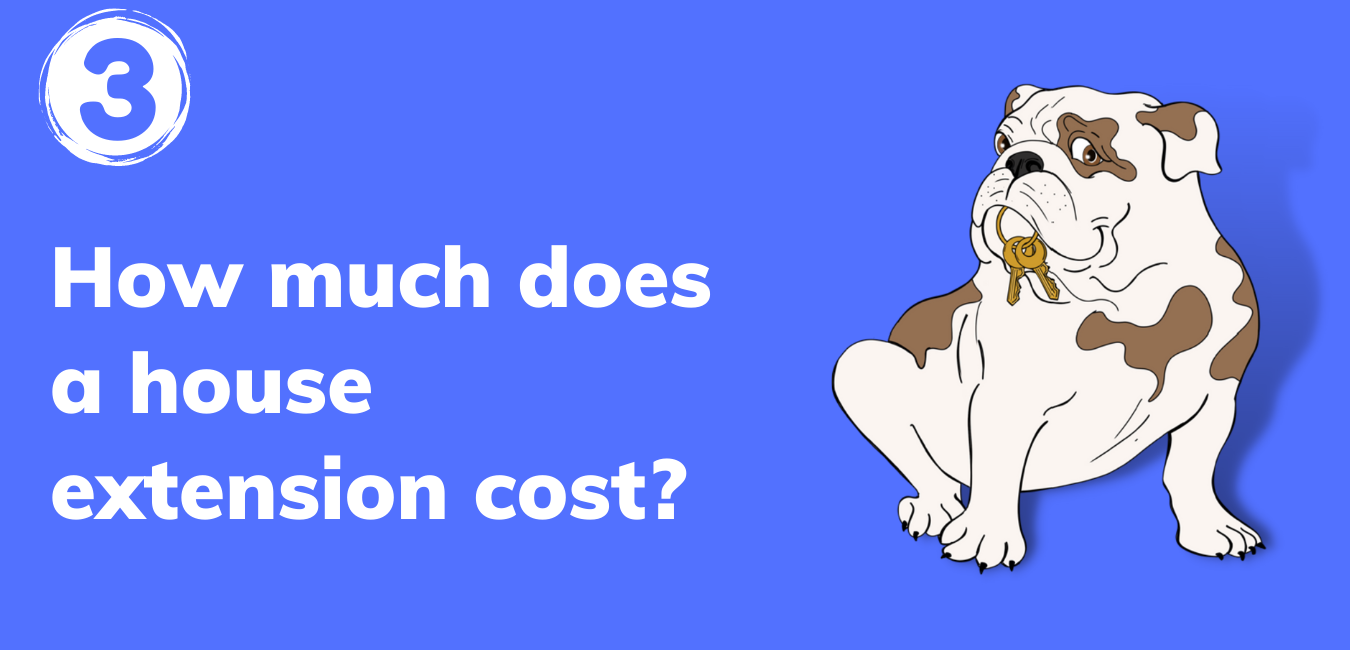Living mortgage-free is a dream that many people have. Once you get on the property ladder, your mortgage product may give you the option to pay it off faster than the agreed schedule. This can allow you to rid yourself of monthly mortgage payments and free up more of your income.
Once you are free from your mortgage, you’ll be entitled to 100% of the proceeds if you sell your home. If you decide to relocate or downsize, you won’t have to pay back the remaining portion of your mortgage when you sell. If your property has increased in value since purchasing it, you could be sitting on a healthy investment.
If you are on a fixed-price mortgage for 5 years, you might want to use this time to aggressively pay down the mortgage to help save money on interest. At the end of the fixed price period, you would have to remortgage the property or take your chances with the lender’s standard variable rate.
With a £150,000 mortgage at 5% over 25 years, paying off a lump sum of £5,000 will reduce your interest payments by £11,500 and allow you to finish paying your mortgage 18 months earlier.
There are clearly savings to be found with paying off your mortgage early, but this needs to be weighed up against the loss. Aggressively paying back your mortgage could mean you are paying less into investments or a pension scheme.
In this blog, we will look at some of the advantages and disadvantages of paying off your mortgage early. We’ll also look at practical steps you can take to repay your mortgage in just 5 years.
How long does the average person take to pay off their mortgage?
There is no average mortgage repayment term. Some people will take on a 15-year mortgage while others take on a 30-year mortgage. Many people will aim to have their mortgage paid off before retirement. If you remortgage at any point, you can expect this to extend the length of time it takes to repay your mortgage.
Paying off your mortgage in 5 years is not unusual, particularly for high earners. Some people make early repayments every month while others make additional payments when they have a lump sum to spare. Early repayment isn’t necessary and doesn’t always make sense. Some people like the predictability of their monthly repayments and knowing exactly how long it will take them to be debt-free.
Is there a disadvantage to paying off your mortgage early?
Paying off your mortgage in five years will help you to be free from mortgage debt forever. But at what cost? If you are putting all of your spare income towards paying off your mortgage, you might be unable to save, invest or put the money towards your pension.
The returns you could see from your property might not be as large as the returns you could see from investments. So before deciding if paying back your mortgage in 5 years is a good idea, think about what you will need to sacrifice to make this happen.
This is a simple cost-benefit analysis. Every choice you make about your money comes with a cost, and hopefully a benefit. Keeping it in a low-interest savings account will mean that you always have access to the money, but it won’t be working as hard as it could in a less accessible investment form. Likewise, paying off your mortgage early will give you some freedom in the future, but you have to think about what you are giving up when you focus on paying back your mortgage.
Paying back your mortgage in 5 years
If you decide that paying back your mortgage is a priority, these are the steps you will need to take. Always seek professional financial advice before making any big decisions. It might be popular at the moment to aggressively pay down debts, but it isn’t always the right option.
Pay down expensive debts first
There’s little sense in putting money towards mortgage repayments if you have more expensive debts to consider. Credit cards can have eye-watering interest rates that will be much higher than your mortgage. When it comes to paying back debts, it always makes sense to pay down the most expensive debts first.
While £2,500 in credit card debt at 18.9% APR might not seem like much, it would take 13 years and 10 months to clear the debt making payments of £40 per month. You would also pay £4,120.64 in interest. So before you put all extra money towards your mortgage, make sure you have paid back everything else with a higher interest rate.
Find out if early repayment is an option
The first step is to find out if your mortgage company will allow early repayment. Some will only allow you to repay a certain amount each year, and any additional early repayments will be subject to a fee. This is to cover any loss of interest the lender expected to receive. If the fee is higher than you stand to save in interest payments, it might not be worth overpaying above the allowed amount.
Find out when the interest is calculated
You need to make overpayments at the right time to increase the benefit. If your interest is calculated daily, then making a lump payment as soon as possible is better. But if the interest is calculated annually, then you need to time your overpayments so that it reduces the interest due. Speak to a mortgage broker if you aren’t sure how your interest is calculated. They can help you switch to a better lending product if yours isn’t working for you.
Determine what is left to pay
Before you work out your monthly repayments, you need to know how much is left to repay. Your mortgage provider should be able to tell you the sum to be repaid. Remember that early repayment should reduce the total amount you pay because you will pay less in interest. But this isn’t always the case if you have to pay early repayment penalties.
If the fees you will have to pay are higher than the interest you are saving, then it isn’t worth repaying your mortgage early. In this instance, you should look to refinance your mortgage with another lender. Look for a lender that doesn’t charge early repayment fees to get your plans back on track.
Work out what you can afford to pay each month
Budgeting is the best way to maximise your mortgage payments. You don’t want to stretch yourself so thin that you are unable to keep up with unexpected costs. If this happens, you could run into trouble if your circumstances change.
Look at your monthly income and outgoings and determine where you can boost your earnings and trim your expenses. Reducing your monthly food budget, getting rid of TV subscriptions and saying goodbye to your gym membership could fee up a lot of room in your budget.
At £40 a month, getting rid of an unused gym membership could allow you to put an extra £480 towards your mortgage per year. As a couple, this could increase to £960. Repeat this over a few monthly expenses and you could soon see the extra monthly income add up.
Alternate months
Plunging all of your money into repaying your mortgage isn’t always a clever move. While it might save you money on interest payments, you might be sacrificing your financial stability. If you run into trouble, plunging all of your income into a home means that the only way to access these funds is to sell.
A better alternative would be to split your extra money between savings and mortgage overpayments. This will help to bolster your emergency fund so that you aren’t left out in the cold if your situation changes.
Stay accountable
Tracking where every penny goes will help you to remain accountable. Using budgeting software or spreadsheets will allow you to keep on track with your savings and repayments. You’ll also be able to see the impact your overpayments have on your mortgage equity and the amount of interest you will pay over the lifetime of the mortgage.
When you know where every penny of your income goes, it’s easier to identify areas of waste and how you can direct more of your income towards paying off your mortgage.
Maximise your pension payments first
Paying additional income into your pension isn’t just great for your retirement plans, it also allows you to make the most of government and employer contributions. You can also get tax relief on your pension contributions, so you could save money on your tax bill.
Overpaying your mortgage isn’t always the best option, as you could be missing out on tax relief and employer contributions to your pension. Even something as simple as a LISA could be more beneficial in the long-term, as you will earn a maximum of £1,000 per year on £4,000 of savings.
Refinance if you aren’t disciplined
If you worry that you won’t be able to stick to your repayment plan, you could refinance your mortgage to a shorter term. This will increase your monthly payments and allow you to pay off your mortgage faster, without paying early repayment fees. You will need to meet the lender’s affordability checks and show that you can make the higher monthly repayments.
If you secured your mortgage with a low deposit, you might be in a better position once you have paid down the principal and increased your equity. This could allow you to secure a better interest rate with a shorter repayment term. Instead of repaying your mortgage over 30 years, you could reduce it to a 15-year mortgage and secure a lower interest rate.
Is there a better way to do this?
Making your usual monthly repayments and making smart investments could help you to pay back the mortgage sooner and without feeling the pinch. If your money could earn a higher rate of interest than you are paying on your mortgage, it might make more sense to save the money and then pay back your mortgage in a lump sum when you are ready.
Think about an offset or flexible mortgage
With an offset or flexible mortgage, you will have the option to draw back the money you have overpaid in the event you need it again. This is an excellent way to safeguard your finances, pay back your mortgage faster, but still access the money if you need it.
You don’t have to sell your home and you won’t be charged a fee. An offset mortgage is like an optional savings account. If you leave the money there, it’s paying off your mortgage, but you can always withdraw it if you need to.
What to do once your mortgage is repaid
If you are going to pay off your mortgage in one lump sum, you will need to request a mortgage satisfaction document from your lender. This will confirm that you have paid the remaining balance, any interest charges due and any early repayment fees.
You don’t have to do anything once your mortgage payments are complete. You can request a copy of your title deeds that will demonstrate you are the owner of the property and there is no mortgage on the property. If your home isn’t registered with the Land Registry, you will need to get it added. If you purchased your home after 1990, you shouldn’t need to worry about this.
It’s important to make sure you have good property insurance in place, as you will now be solely responsible for the property.
Once your mortgage payments are complete and you are free from debt, you might start to think about retirement or investing. Make sure you allocate your extra monthly income towards smart investments to make the most of your mortgage-free position.
If you need help understanding early repayment and how it can impact your finances, get in touch with Niche Mortgage Info today, we can help you to secure the right lending products that will enable you to realise your dream of living debt-free.




